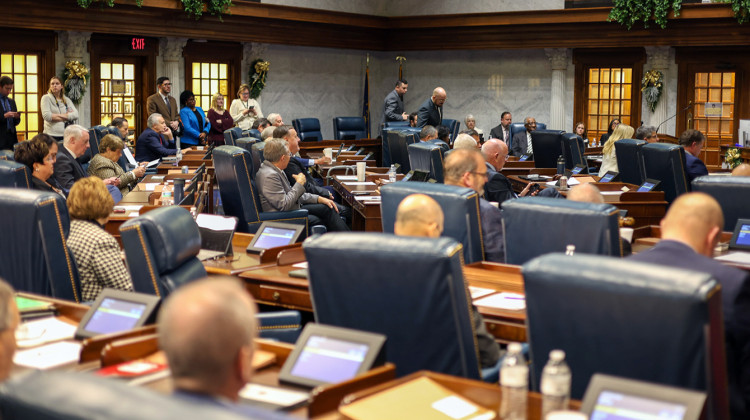
A closeup of a map from the report. The darker the state is shown on the map, the less prepared it is for the health effects of climate change.
Courtesy of Trust for America’s Health and the Johns Hopkins Bloomberg School of Public HealthIndiana is expected to face more severe storms, flooding, extreme heat, and tick-borne diseases in the future. But a new report said the state hasn’t done enough to prepare.
The report by Trust for America’s Health and the Johns Hopkins Bloomberg School of Public Health ranked states based on how vulnerable they are to the effects of climate change and how prepared they are to address them.
The report said states like Indiana need to put more funding toward public health, coordinate with federal and local governments, dedicate staff to preparing and responding to climate impacts specifically, and incorporate equity into their preparedness plans.
Matt McKillop is a senior researcher at Trust for America's Health and co-authored the report. He said states also need to work with communities to make sure those plans meet everyone’s needs.
“You want to make sure that cooling centers aren't being established in areas that are going to be difficult for people to access or that are sort of out of the way of where the highest risk populations might be," McKillop said.
But the director of Indiana University’s Environmental Resilience Institute, Janet McCabe, said she has questions about the data used for Indiana’s rankings and that it might not completely capture what’s happening in the state. The institute works with Indiana communities to help them become resilient to the effects of climate change.
“There are some communities that are really focusing on these issues quite a bit and then there are others for whom it's not on their radar screen," McCabe said.
But McCabe said Indiana could stand to have more conversations about climate resilience at the state level. Indiana was one of 17 states that the report deemed less prepared to address the health effects of climate change.
Contact Rebecca at rthiele@iu.edu or follow her on Twitter at @beckythiele.
Indiana Environmental reporting is supported by the Environmental Resilience Institute, an Indiana University Grand Challenge project developing Indiana-specific projections and informed responses to problems of environmental change.
 DONATE
DONATE






 Support WFYI. We can't do it without you.
Support WFYI. We can't do it without you.